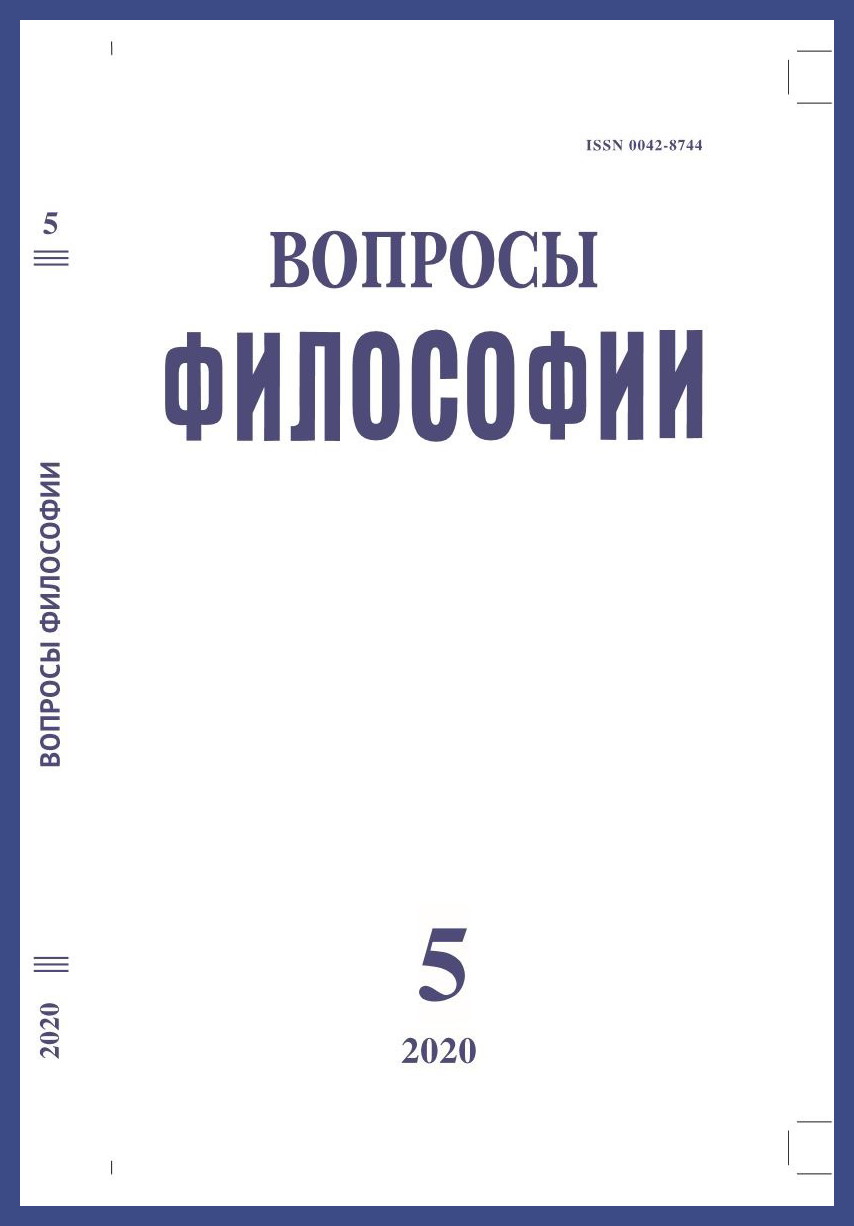Identity as a Form of Categorical Synthesis
DOI:
https://doi.org/10.21146/0042-8744-2020-5-140-149Keywords:
cultural universals, identity, typology of identity, inversion, social identity, cognitive-cultural forms, everyday life, categorical synthesisAbstract
The work is devoted to the analysis of the genesis of the definition of “identity”, which, having entered the scientific and discursive circulation as an official term of psychiatry, over time has found the semantic boundaries of the philosophical category in the general series of categorical measures of being and now claims the role of a spokesman for the shades of infinite diversity and the dynamic variability of existing as forms being, and the forms of human involvement in reality. Moreover, identity is regarded as a still forming (developing) categorical measure of certainty and regularity of being, something self-identity. It is shown that the semantic structure and forms of operationality of the category “identity” reflect the characteristic features of the post-classical stage of development of cognition, knowledge and forms of prediction of being: constructivism, the unity of the subject and object of cognition, the synthesis of diverse knowledge and cognitive practices. The development of the category of “identity” and its semantic faces is dominated by the role of contextual-author interpretation, which brings any discourse of identity to the plane of categorical synthesis.

